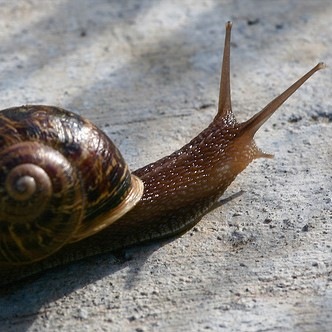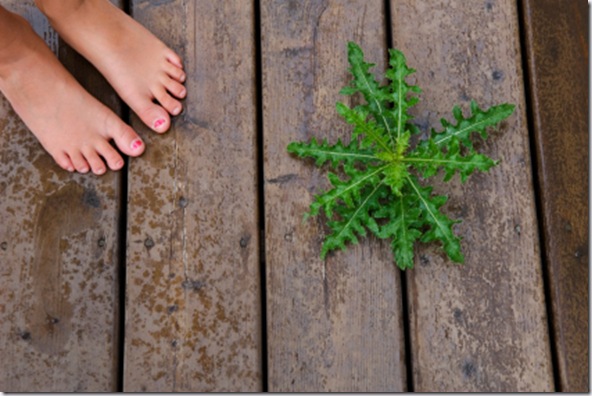-
How to Kill Thrips Organically on Rhododendrons and Other Plants
Thrips are a tiny sucking insect that pester Rhododendrons (particularly many older varieties) and Azaleas, some evergreen Viburnums, Photinia, and occasionally other plants in the coastal Pacific Northwest. You can tell you have them because your ordinarily green leaves will develop a silvery sheen on them, while the undersides of the leaves will get little…
-
Soil, Water, and Mulch: The Three Key Steps to a Healthy Organic Garden
As a professional landscaper, I get to see and diagnose a lot of garden issues. I find many people at wits’ end, spraying for pest problems and dealing with unhappy plants. Most of the time, the pest problem or grumpy plant shouldn’t be looked at as the problem itself – more accurately, they are symptoms…
-
Organic Snail and Slug Control: How to Kill Snails and Slugs Naturally

Snails and slugs are one of the most common pests in the garden, and the traditional pesticide treatment for them is particularly nasty. If you are transitioning to an organic garden, treating snails and slugs differently is an easy (and still highly effective) change that will have a great impact on your family’s health and…
-
Organic Gardening 101: How to Begin Gardening Naturally and Have Happier Plants
I’ve been asked a lot lately about organics in the garden. “How do I kill snails around my vegetable starts?” is a common question. “Does anything organic really work on roses?” I even spoke with one gardener who felt chained to her Miracle-Gro routine – having to laboriously water it in every two weeks. It…
-
Organic Weed Control – How to Kill Weeds Without Harmful Chemicals

As a garden coach, I’m often asked if there are any organic ways of getting rid of weeds that actually work. Nobody wants to spray harmful chemicals in their garden. The good news is that there are a lot of organic alternatives. The bad news is, some organic techniques can require an up-front time investment,…
-
Backyard Chickens – Five Reasons You MUST Try Them, and Two Reasons Why Not
1. They make charming pets! I love their happy little chortles when they see us, and if you want them to love you forever, a bit of leftover rice or lettuce goes down a treat. They’re great gardening companions, too. Esther, above, likes to stay close when I’m digging so she can have first crack…